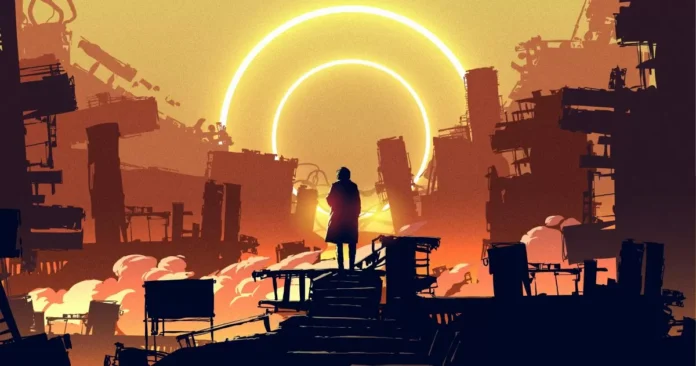Science fiction is a genre of literature that has captured the imagination of readers for decades. It is a genre that combines elements of science and technology with imaginative and futuristic concepts. Science fiction has the ability to transport readers to new worlds, challenge their perceptions of reality, and explore the endless possibilities of the future. In this article, we will delve into the world of science fiction and explore some of the best philosophical science fiction books that have been written.
Science fiction has been around for centuries, with some of the earliest examples dating back to ancient Greek and Roman mythology. However, it wasn’t until the 19th century that science fiction as we know it today began to take shape. With the advancements in science and technology during this time, writers began to explore the possibilities of what the future could hold. This led to the birth of a new genre that would go on to captivate readers for generations to come.
One of the most intriguing aspects of science fiction is its ability to explore philosophical concepts. Through the use of futuristic settings and advanced technology, science fiction authors are able to delve into deep philosophical questions about the nature of humanity, the universe, and our place in it. These books not only entertain readers but also challenge their beliefs and perceptions, making them think about the world in a whole new way.
So, without further ado, let’s take a look at some of the top philosophical science fiction books that have been written.
1. “Brave New World” by Aldous Huxley
Published in 1932, “Brave New World” is a classic science fiction novel that explores the consequences of a society that is controlled by technology and consumerism. Set in a dystopian future, the book follows the story of a society where people are genetically engineered and conditioned to fit into specific social classes. The novel raises thought-provoking questions about the role of technology in society and the dangers of sacrificing individuality for the sake of stability.
2. “1984” by George Orwell
Considered a masterpiece of dystopian fiction, “1984” is a must-read for any science fiction fan. Set in a totalitarian society, the book follows the story of Winston Smith, a man who rebels against the oppressive government and its use of technology to control its citizens. Through its exploration of themes such as government surveillance, censorship, and the power of language, “1984” remains a relevant and thought-provoking read even today.
3. “The Hitchhiker’s Guide to the Galaxy” by Douglas Adams
While not as heavy on philosophical themes as the previous two books, “The Hitchhiker’s Guide to the Galaxy” is a hilarious and thought-provoking read that still manages to touch on some deep philosophical questions. The book follows the adventures of Arthur Dent, a man who is taken on a journey through space after the Earth is destroyed to make way for an intergalactic highway. Through its witty and satirical take on the universe, the book raises questions about the meaning of life and the absurdity of the human condition.
4. “Dune” by Frank Herbert
Set in a distant future where humanity has spread across the universe, “Dune” is a science fiction epic that explores themes of politics, religion, and ecology. The book follows the story of Paul Atreides, a young man who must navigate a treacherous political landscape and fulfill his destiny as the leader of a desert planet. With its rich world-building and complex characters, “Dune” is a must-read for any fan of philosophical science fiction.
5. “The Left Hand of Darkness” by Ursula K. Le Guin
Winner of both the Hugo and Nebula awards, “The Left Hand of Darkness” is a groundbreaking science fiction novel that challenges traditional ideas of gender and sexuality. Set on a planet where the inhabitants have no fixed gender, the book explores themes of identity, politics, and the nature of humanity. Through its exploration of a society without gender, the book raises thought-provoking questions about our own society and the limitations we place on ourselves.
6. “Snow Crash” by Neal Stephenson
Set in a future where the world is dominated by corporations and virtual reality, “Snow Crash” is a fast-paced and action-packed science fiction novel that also manages to delve into philosophical themes. The book follows the story of Hiro Protagonist, a hacker and pizza delivery driver, who must save the world from

